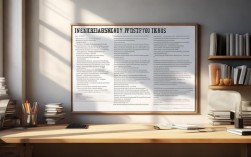雅思口语考试中,“accommodation”(住宿)是高频话题之一,不仅出现在Part 1的基础问答中,也可能延伸至Part 2的个人经历描述和Part 3的社会现象讨论,无论是描述学生宿舍、租房经历,还是探讨不同住宿方式的优劣,掌握相关词汇、句型和逻辑框架,都能帮助考生更流畅地表达观点,本文将围绕“accommodation”话题,从常见住宿类型、选择因素、优缺点分析到实用表达,全面梳理口语应考思路,并提供结构化建议。

常见住宿类型及特点
在雅思口语中,谈论“accommodation”时,首先需要明确具体的住宿类型,以下是几种常见的住宿形式及其核心特征,考生可根据自身经历或社会常识展开描述。
学生宿舍(Student Dormitory)
学生宿舍是学生群体的首选,通常由学校或第三方机构管理,分为单人间、双人间或多人间,其核心优势在于“便利性”:距离教学楼近、设施齐全(如公共厨房、洗衣房)、社交机会多,适合刚到异地的学生,缺点可能是“隐私性差”(如共享卫浴、噪音干扰)和“空间有限”。
租房(Renting an Apartment/House)
租房分为整租(entire apartment)和合租(sharing an apartment)两种,整租适合追求独立性的考生,但成本较高;合租能分摊费用,但需考虑室友 compatibility(相处融洽度),租房的优势在于“灵活性”(可按需装修、选择地段)和“空间更大”,缺点是“流程繁琐”(如找房源、签合同)和“额外开销”(如中介费、押金)。
寄宿家庭(Homestay)
寄宿家庭即住在当地居民家中,常见于语言学习阶段,其最大特点是“沉浸式语言环境”,能快速提升口语能力,同时体验当地文化,但需适应“家庭规则”(如作息时间、饮食习惯),且隐私空间相对较少。
酒式公寓(Serviced Apartment)
酒店式公寓提供类似酒店的服务(如每日清洁、前台接待),同时配备厨房等设施,适合短期居住或追求高品质生活的群体,优点是“服务完善”“安全有保障”,缺点是“价格较高”。
选择住宿的核心因素
考生在描述住宿选择时,需说明影响决策的关键因素,这能体现逻辑思维和词汇广度,以下是常见的选择维度及表达示例:
| 选择因素 | 相关词汇/表达 | 例句 |
|---|---|---|
| 预算(Budget) | affordable, cost-effective, expensive, rent, utility bills, deposit | "Budget was my top priority when choosing accommodation, so I opted for a shared apartment to split the rent." |
| 位置(Location) | convenient, close to campus/transportation, remote, commute time, neighborhood safety | "The apartment's location is ideal—it's only a 10-minute walk to the university and near a subway station." |
| 设施(Facilities) | furnished, unfurnished, Wi-Fi, air conditioning, gym, parking, elevator | "I prefer a fully furnished place with essential facilities like high-speed internet and a washing machine." |
| 社交需求(Social Needs) | sociable, private, quiet environment, community events, roommates | "As an outgoing person, I enjoy living in a dorm where I can easily make friends through communal activities." |
不同住宿方式的优缺点对比
在Part 3中,考官可能会要求考生对比不同住宿方式的优劣,以下表格整理了学生宿舍、租房、寄宿家庭的优缺点,帮助考生快速构建观点:
| 住宿类型 | 优点 | 缺点 |
|---|---|---|
| 学生宿舍 | ① 便利性强(近校园、设施全) ② 社交机会多 ③ 成本较低(相比租房) |
① 隐私性差(共享空间) ② 规则严格(如访客限制) ③ 噪音问题(人多) |
| 租房 | ① 空间独立,自由度高 ② 可选择理想地段 ③ 适合长期居住 |
① 流程复杂(需签约、付押金) ② 成本较高(整租时) ③ 可能遇到不良中介 |
| 寄宿家庭 | ① 沉浸式语言环境 ② 体验当地文化 ③ 生活便利(如三餐) |
① 隐私受限(需遵守家庭规则) ② 饮食习惯可能不适应 ③ 租金相对较高 |
雅思口语中的实用表达与句型
描述住宿经历
- "I used to live in a student dorm during my freshman year, which was a great way to meet new people."
- "The apartment I'm renting now is a bit old, but it's spacious and has a lovely balcony."
表达偏好与原因
- "I prefer living alone because I value my privacy and can set my own schedule."
- "If I had to choose, I'd go for a homestay since it helps me learn the local language faster."
提出建议
- "For international students, I'd recommend starting with a dorm to adjust to the new environment gradually."
- "When renting an apartment, always check the neighborhood safety and public transportation links."
讨论优缺点(对比句型)
- "While dormitories are affordable, they lack the privacy that renting an apartment offers."
- "Although homestays provide cultural immersion, some people might find it challenging to adapt to different family rules."
Part 2 & Part 3 应考思路
Part 2:Describe a place you have lived in
- 结构建议:
- 开头:点明住宿类型(如"a shared apartment I rented with two friends")和位置。
- 主体:描述房间布局、周边环境、居住感受(用具体细节,如"the large window facing a park"或"we often cooked together in the kitchen")。
- 总结这段经历的意义(如"it taught me how to share space and communicate with roommates")。
Part 3:Follow-up questions
- 问题示例:
- "Do you think young people prefer living alone or sharing with others? Why?"
- "What are the differences between renting and buying a house in your country?"
- 答题思路:
- 明确立场(如"I believe young people increasingly prefer living alone...")。
- 给出原因(经济独立、追求隐私、工作流动性等)。
- 举例或对比(如"Unlike renting, buying a house requires a large down payment but offers long-term stability")。
FAQs
Q1: 雅思口语中描述住宿时,是否需要使用复杂词汇?
A1: 不必刻意追求复杂词汇,准确性和流畅度更重要,建议使用基础词汇搭配清晰的结构(如用"affordable"代替"cost-effective",用"noisy"代替"deafening"),若想提升表达层次,可适当使用短语(如"conveniently located""spacious and well-furnished")或从句(如"which allowed me to save time on commuting")。
Q2: 如何在Part 3中深入讨论“accommodation”相关话题?
A2: 深入讨论需结合社会背景和个人观点,当被问及“租房vs买房”时,可从经济压力(房价上涨、年轻人储蓄少)、生活方式(租房灵活性高、买房稳定性强)、文化观念(传统重视房产、现代更注重体验)等角度展开,并加入具体数据或现象(如"In big cities like Beijing, many young people delay buying a house due to high property prices"),避免泛泛而谈,多维度分析能体现逻辑深度。











